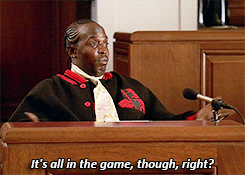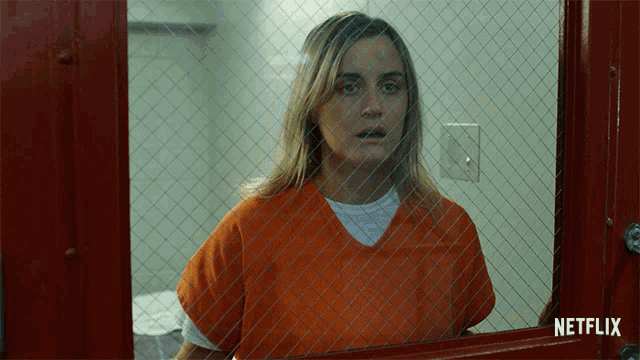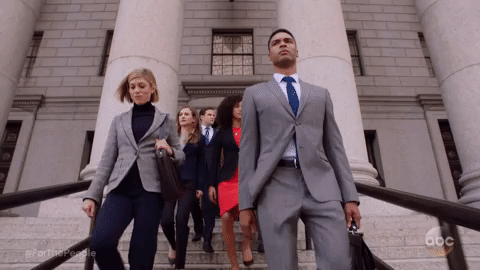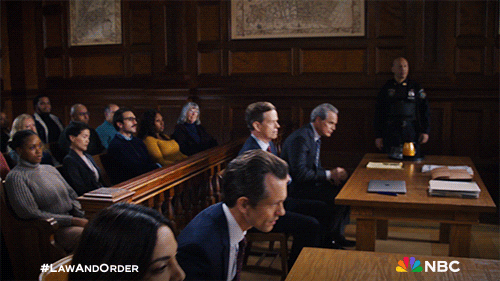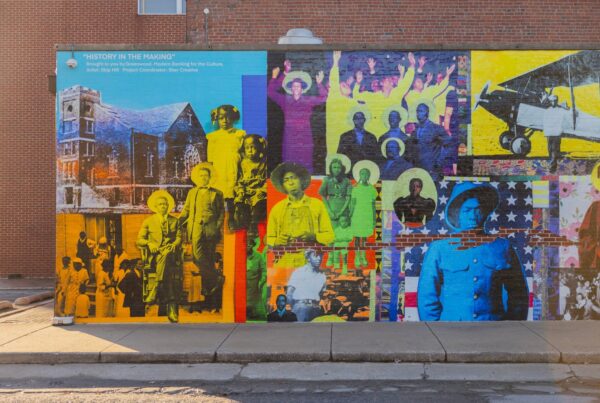If you’re anything like me, you love crime shows. I’ve certainly been known to spend some of my time – perhaps too much time – binge-watching my favorites. It’s easy to get caught up in these other worlds, cheering on your favorite character, hoping they come out on top before the credits roll. But, too often, getting lost in these shows also means losing track of the realities of the systems that these shows revolve around.
Let’s separate fact from fiction that TV regularly depicts about the pretrial system.
1. FICTION: Cities are Hotbeds of Crime
- Audiences of popular crime shows – from S.W.A.T. in L.A. to The Wire in Baltimore – may feel familiar with America’s largest metropolises, where most of these fictional dramas take place. But with content focused primarily on violent crime, viewers may be misled into thinking large cities are dangerously crime-ridden. Crime rates demonstrate how rare violent crime is in urban areas. In fact, they have substantially decreased over the last thirty years.
2. FACT: Police Use Force Often
- Policing shows regularly depict brutality as a necessary and potentially justifiable tactic used by law enforcement to uncover the truth. For example, Law and Order: SVU’s Detective Elliot Stabler is well-known for physically intimidating or beating suspects he deems guilty. In reality, excessive use of force by police is an unjustifiable practice that injures and kills thousands every year, with little or no accountability.
3. FACT: Prisons and Jails Are Different
- In Orange is the New Black, Piper Chapman clarifies that she is going to “prison, not jail.” Often, people mix these terms up. Prisons are long-term facilities, housing people serving long sentences. Jails are short-term detention facilities, with exponentially growing populations due to wealth-based pretrial detention. Today, most people in jail – approximately two-thirds – are there awaiting their day in court while legally presumed innocent.
4. FACT: Overly-Intense Interrogations Get Confessions
- Fans of Brooklyn 99′s highest-rated episode, “The Box,” likely cheered when Detective Jake Peralta triumphantly extracted a murder confession from his dentist suspect. However, the tactics Jake relies on – an all-night interrogation, increasing discomfort, and lying about “evidence” – can coerce people into making false confessions. Police-induced false confessions, which typically occur after 16 straight hours of interrogation, are among the leading causes of wrongful convictions.
5. FICTION: You Are Entitled to A Robust Defense
- For the People offers an in-depth glimpse into the busy, high-stakes lives of public defenders and prosecutors. However, the show may leave fans with a false impression of public defenders’ caseloads and their ability to prepare robust defenses. While the show’s attorneys tackle one case at a time, real-world public defenders are burdened with three to ten times the number of cases they can effectively handle.
6. FICTION: Everyone Gets Their Day in Court
- Those who have watched Law & Order know that the show highlights trials as a hallmark of the criminal justice system. But viewers may be shocked that most cases don’t go to trial: 97% of convictions flow from plea deals, bypassing trials altogether.
7. FICTION: People Always Run Away from Prosecution
- Dog the Bounty Hunter depicts ‘Dog’ Chapman tracking down people evading court and bringing them to jail. However, what we have learned at The Bail Project, in the course of providing free bail assistance to thousands of low-income Americans, is that in most cases when people miss court it’s not because they are trying to avoid prosecution; rather they miss court appearances because of common life challenges, including transportation or childcare needs, inability to miss work or appointments, or misunderstandings about when they should go. The Bail Project’s Community Release with Support model demonstrates that when we address their needs, people return for 91% of their court dates even without money on the line or a bail bonds agent breathing down their necks.
8. FICTION: Criminal Cases Resolve Quickly
- Fans of The Good Wife likely appreciate how the series strives for realism in its representation of the legal system but may be led astray with its speedy portrayal of trials. Preparing for and executing a criminal trial in real life is a lengthy process that can take months, if not years to complete. During this time, thousands of unconvicted people are trapped behind bars, simply because they cannot afford bail.
When you next binge-watch your favorite crime drama, see if you can spot pretrial system fact from fiction. And if you aren’t sure, check out bailproject.org to find out!
Thank you for reading and your willingness to engage in a complicated and urgent issue. In addition to providing immediate relief by offering bail assistance, we at The Bail Project are working to advance systemic change. Policy change doesn’t happen without the support of people like you. If you found value in this article, please consider taking action today by donating.









